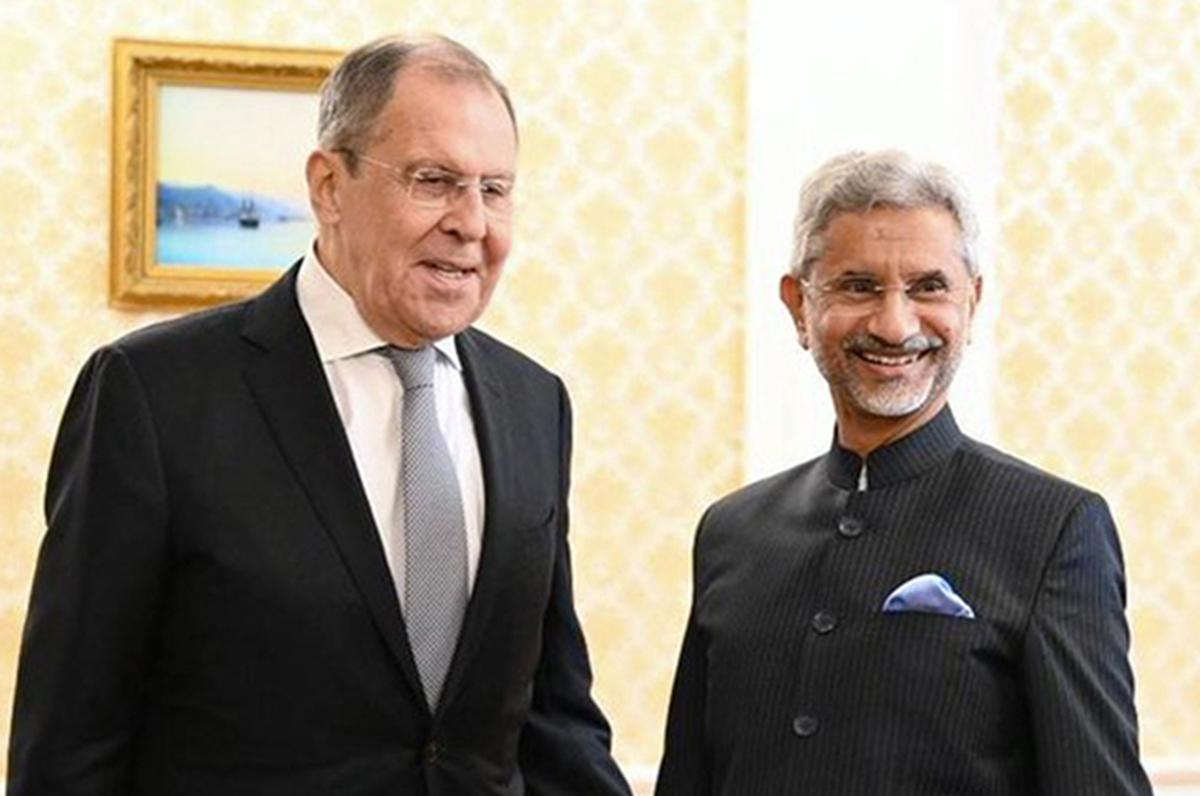
Russia, India stand for 'more just' and 'polycentric' world, says Moscow ahead of Jaishankar-Lavrov talks
The Hindu
External Affairs Minister S. Jaishankar begins a two-day visit to Russia this evening amid growing global concerns over increasing hostilities between Russia and Ukraine
Russia and India stand for the formation of a "more just" and "polycentric" world order and both sides demonstrated the proximity of positions on the most pressing issues, Moscow said on November 7, a day ahead of talks between the Foreign Ministers of the two countries.
External Affairs Minister S. Jaishankar begins a two-day visit to Russia this evening amid growing global concerns over increasing hostilities between Russia and Ukraine.
In a statement, the Russian Foreign Ministry said Mr. Jaishankar and Russian Foreign Minister Sergey Lavrov, in their talks, will focus on trade and investment, use of national currencies for trade, "promising projects" in the energy sector and the formation of a security architecture in the Asia-Pacific region.
"Russia and India stand for the active formation of a more just and equal polycentric world order, and proceed from the inadmissibility of promoting the imperialist diktat on the global arena," it said.
"Both countries demonstrate the proximity of positions on the most pressing issues and stand for the adherence to the universally recognised norms of international law, enshrined in the UN Charter," the Ministry said.
It further added: "We are aimed at promoting a unifying agenda and building a constructive dialogue in the field of interstate relations." The Russian foreign ministry said Mr. Jaishankar and Mr. Lavrov will also discuss ways to further "advance joint work" in the key areas and compare notes on upcoming contacts.
"The talks will focus on trade and investments, transport and logistics, the use of national currencies in mutual settlements, as well as promising projects in the energy sector, especially in the Arctic shelf and the Russian Far East," it said.













